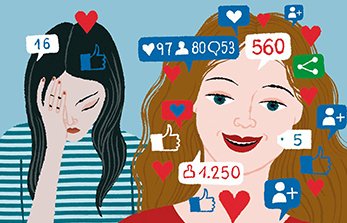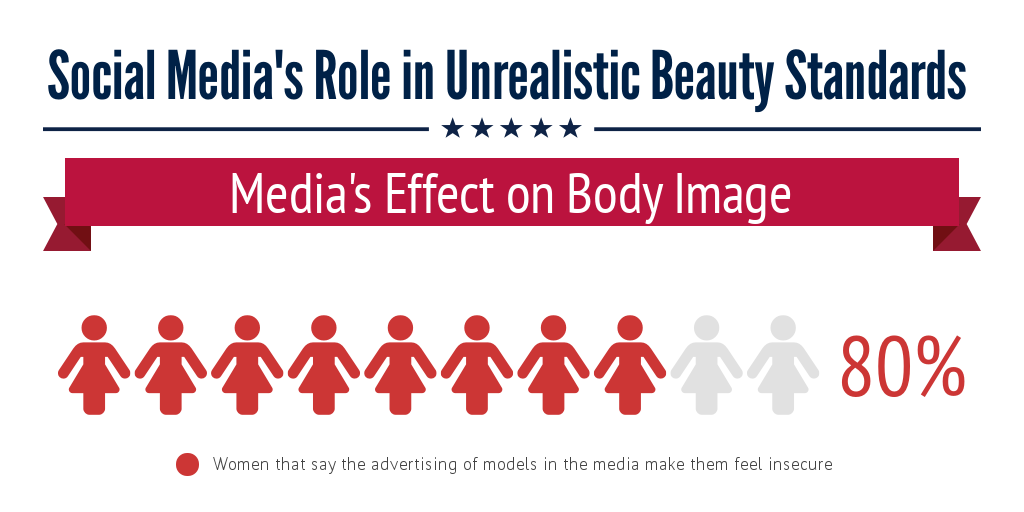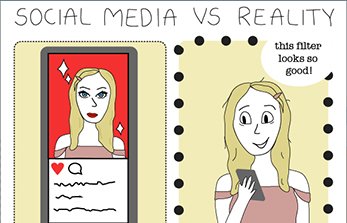A mother of a 14-year-old teenage girl showed concern for her daughter, saying that she was cheerful and friendly when she was a kid, but all changed when she started using a smartphone nearly two years ago, she began staying by herself. She avoids social gatherings and functions and always stays in the house. The intriguing question is how social media makes people less social and a product of ‘virtual socialisation’ in the digital age, where they no longer have face-to-face interactions with friends, relatives and other people. The screen is the only way of community formation for teenagers, where they feel emotionally connected to people in the community. Craving for virtual community’s validation through likes and more followers, they feel devastated and tormented when they don’t get this validation that they fit into the ideal body size. The way they perceive their body changes, often disliking their body or certain parts of their body and feeling unworthy. During the interaction with the girl mentioned above, she revealed, “I feel I am ugly, and all my friends and cousins look so nice. I don’t feel comfortable around them, as I am not presentable and so different. I feel unworthy.”
In a case study from Services for Healthy Use of Technology(SHUT) clinic, a first technology de-addiction clinic, they received a case of a 21-year-old girl addicted to taking selfies every 15-20 minutes, indicating social anxiety and obsessive selfie behaviour in pursuit of always looking good and being popular on a social media platform.
According to social comparison theory, individuals evaluate their self-worth by comparing themselves to others. Body image is one such factor where an individual tends to compare themselves with people who have perceived better bodies, which leads to a feeling of unworthiness or dissatisfaction over one’s physical appearance. This comparison was not always a big issue; only some cases were related to mental health crises or extreme conditions. The advent of social media, which allowed scalability and made available plenty of content on these platforms, made teenagers and children think negatively about their bodies, often influenced by celebrities and influencers with seemingly unrealistic bodies. The plethora of content on body appearance and beauty standards has transformed the societal perception of the ideal body. These unrealistic beauty standards are often curated images by influencers and celebrities on these platforms.
Whether you use Instagram, Snapchat or Facebook, on almost every platform, you have a filtering and editing tool to alter the actual image to fit into the fixed virtual beauty standards. When teenagers cannot achieve these unrealistic body shapes and sizes, it takes a mental toll on their minds as if they are lagging and generates a feeling of inferiority.
As a result, they resort to several means to fit into those unrealistic standards, whatever it takes, from filtering and editing to the extent of going for cosmetic surgeries as selfie surgeries are on the rise among youth. This adamant behaviour of young people to look beautiful, fair and slim could go to the extent of Body Dysmorphic Disorder (BDD), eating disorders, anxiety, depression and loneliness, and it can even lead to suicide attempts.
According to research, ‘How photo editing in social media shapes self-perceived attractiveness and self-esteem via self-objectification and physical appearance comparisons’ published in BMC Psychology found that ‘photo editing behaviour may contribute to feelings of self-perception as an object and basing one’s worth on appearance, especially among vulnerable groups like teenagers’.
The digital age has ushered in a new era of socialisation through screens, where virtual validation and unrealistic beauty standards on social media have become dominant forces shaping teenagers’ self-esteem and body image perceptions. The stories we’ve encountered, from the teenage girl feeling “ugly” and “unworthy” to the case of obsessive selfie behaviour, shed light on the profound effects of these digital phenomena.
However, the power to redefine our relationship with social media is with the users. It is important to set healthier standards of beauty and self-worth. Do not follow influencers who promote body negativity. Users have the power to shape the narrative and discourses on social media. The real world is beyond likes and followers.



